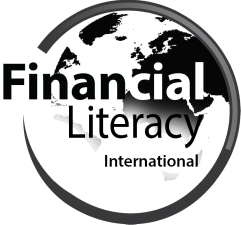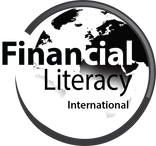Savings Groups
FLI will create savings groups to help underprivileged villagers manage their own money. Through the savings groups, many villagers are able to save, loan, and borrow money within their own villages. FLI will enable villagers to operate their own savings groups in order to maximize the potential for long-term economic stability within their villages. FLI will provide lockboxes to the villagers, and it helps the villagers formalize, adopt bylaws, and elect executive committees from within the villages. FLI will cover all program expenses, including educational manuals, translations, printing, passbooks, and compensation for facilitators. The facilitators will provide oversight and training for the managing villagers, and they provide redundancy in accounting to preserve the integrity of the groups. FLI programs are operated by FLI employees and volunteers, and those staff are directly supervised by FLI leadership. This fosters accountability and transparency within the program. FLI will also obtain any required audits, conducted by an independent and certified public accounting firm.
The FLI savings group program is effective. All funds saved and earned within the savings groups remain within the villages. Further, all savings groups have set term lengths, and at the end of each term, all funds in the savings groups are proportionately disbursed to the village members. The loan activities of the savings groups generate interest income for the remaining members of the groups.
The FLI savings group program is effective. All funds saved and earned within the savings groups remain within the villages. Further, all savings groups have set term lengths, and at the end of each term, all funds in the savings groups are proportionately disbursed to the village members. The loan activities of the savings groups generate interest income for the remaining members of the groups.
Micro Loans
Small or micro-enterprise business teaching is a key cornerstone of FLI. This critical teaching and accountability in a format that is specific and relevant to their own village or community is very important. Each week they can discuss challenges they are facing and their peers and the facilitator will usually find a sustainable way to assist and answer the need. The facilitators, which are employed by FLI, provide weekly monitoring and supervision. FLI’s economic instruction addresses things such as understanding unmet business needs in the community for new micro-enterprise business markets, integrity, honesty, customer service, attractive display if selling products at markets, pricing strategies, consistent business hours, and more. FLI covers all expenses related to translations, printing and all technical programming needed for its programs.
English Language Teaching
In many countries, learning the English language helps vulnerable and disadvantaged people provide for their families. Further, if a person knows the English language he/she can obtain a much better job in the technology, computer, data entry or communications fields including outsourcing jobs for international businesses. Accordingly, FLI proposes to provide English
Language teaching within developing countries at the request of the applicable school authorities. All English teachers are provided by FLI from North America. Teachers are volunteer high school graduates, and must be certified by the Institute for the Nations with Teaching English to Speakers of Other Languages (TESOL). Teachers must also follow the local school authority’s program and schedule. The objective of the English Teaching program is to provide disadvantaged and vulnerable poor people with a way to rise out of poverty.
Language teaching within developing countries at the request of the applicable school authorities. All English teachers are provided by FLI from North America. Teachers are volunteer high school graduates, and must be certified by the Institute for the Nations with Teaching English to Speakers of Other Languages (TESOL). Teachers must also follow the local school authority’s program and schedule. The objective of the English Teaching program is to provide disadvantaged and vulnerable poor people with a way to rise out of poverty.
Legal Status
Registered under Section 501(c)(3) of the Internal Revenue Code
FLI FINANCIAL LITERACY INTERNATIONAL, INC.
EIN: 47-3407325
FLI believes that charity should extend beyond the borders of the United States, and that individuals should help provide foreign aid to those in need. FLI feels an ethical duty to assist those in poverty around the world. FLI is charitable because it is funded entirely with donations from individuals in the United States who do not receive any benefit in return, except the knowledge that they have helped alleviate poverty among the poor in third world countries. Each of FLI’s programs and activities further its exempt purposes by providing teaching and economic opportunities to people who are living in poverty.

